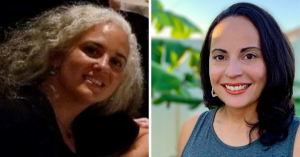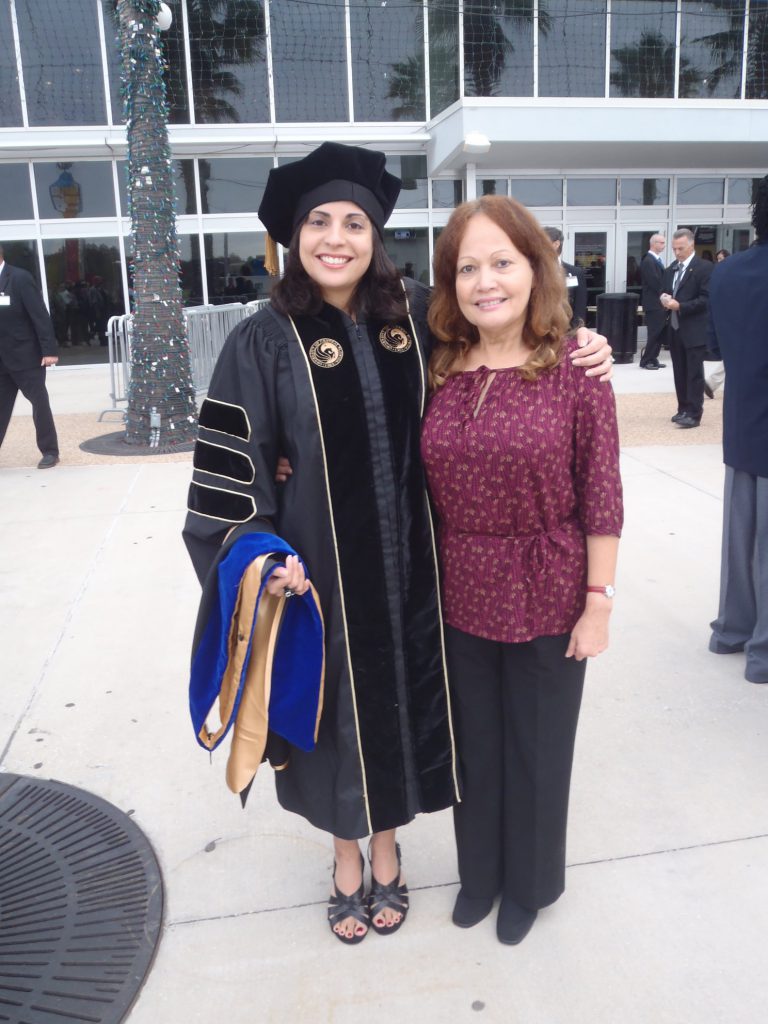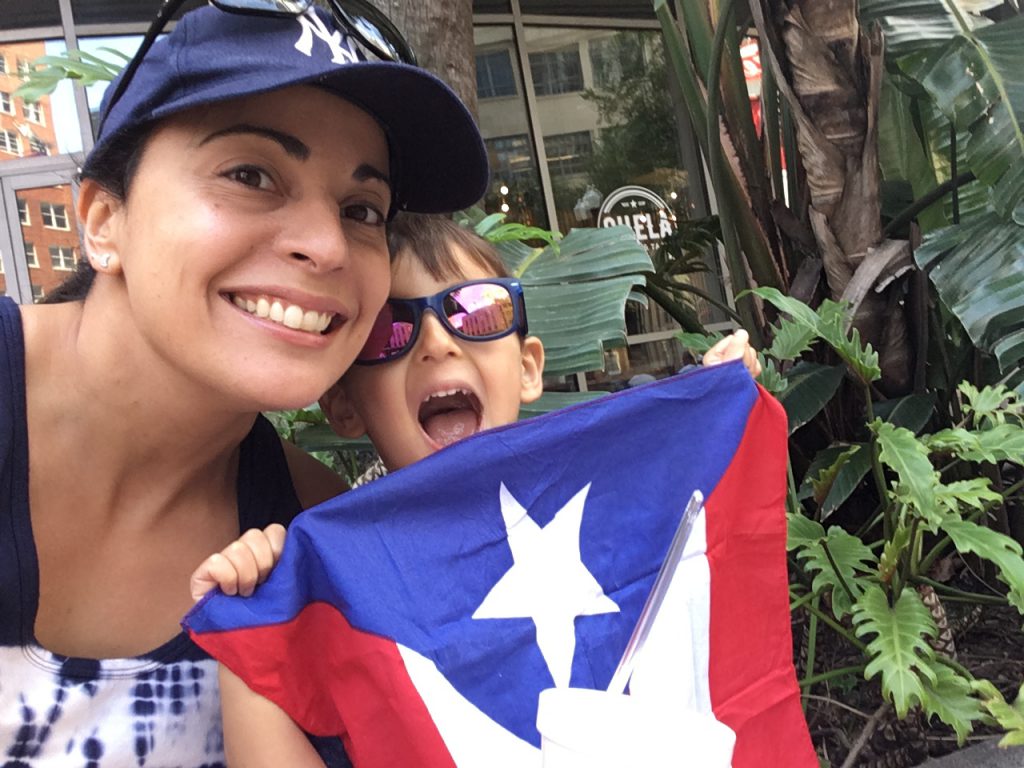
In 1968, the first Hispanic Heritage Week was observed in the United States. Twenty years later, it was expanded to the month-long celebration we now observe from September 15 to October 15. As Stacey DiLiberto and Karina Cespedes see it, Hispanic Heritage Month provides an opportunity for the nation to celebrate the cultural identity of Hispanic and Latinx people, but the two faculty members in the Department of Philosophy’s Humanities and Cultural Studies program are quick to point out that for themselves, the celebration extends beyond October 16. Their cultural identities are connected with their personal and professional identities year-round.
As a first-generation college student and as a Puerto Rican woman, DiLiberto’s roots follow her wherever she goes — including the classroom.
“I feel sometimes like I’ve been given a huge responsibility to represent my family, especially my parents, who wanted to but didn’t have the means to pursue higher education,” says DiLiberto. “To have achieved the highest academic achievements, to get a doctorate degree, was not possible for my parents, so I am their ‘American Dream,’ and I really take that to heart.”

Assistant professor Cespedes also finds that her identity and experiences are closely tied to her research and teaching practices. Her family immigrated to the United States from Cuba in 1980, an experience that she says was foundational to understanding the nuance of Latinx identity, research and cultures — and, by extension, her teaching practices.
“I begin from the perspective that students bring into the classroom a wealth of knowledge about the world, about their vibrant and complex communities,” she says. “I approach my research and teaching with the goal of engaging with students across what may seem like vast differences, but which, upon closer examination, are revealed to be shared historical events.”
DiLiberto and Cespedes teach Latinx Cultural Expressions, a class they developed together. The course examines the relationship between Latinx identity formation, the arts, and epochs of social change and political engagement in the United States. Students trace the social and cultural changes that have affected cultural expression in the arts, literature, philosophy, film and music. In doing so, they gain a deeper appreciation for Latinidades (Latinx communities) in the U.S.
In Central Florida, where the Hispanic/Latinx demographic makes up around 35 percent of the local population, studying and experiencing Latinx culture is particularly relevant.
“This course is important in the context of Central Florida because it provides a space for engaging with the vast and untapped talent that is all around us at UCF,” explains Cespedes.
“Not only that, but UCF’s status as a Hispanic Serving Institution means that students of Hispanic/Latinx descent are learning and thriving here,” adds DiLiberto. “A class that allows them to see themselves in the curriculum — to learn their history and articulate their lived experiences — is important and timely.”

Both Cespedes and DiLiberto are passionate about the importance of representation in the classroom. When Latinx students get to see themselves represented in their professors and mentors, it can open the door to careers that they may not have envisioned otherwise. For other students, the classroom may be their first experience with a member of the Latinx community.
“All students benefit from having access to a variety of perspectives and pedagogical approaches offered by a diverse faculty,” says Cespedes. “I’ll add that for many students, it’s empowering to be positively mentored by a member of the faculty that shares some aspect of their cultural background. Our class is only possible because our colleagues have paved the way. I’m thinking here of the great work that our colleagues — Cecilia Milanes, Wanda Raimundi-Ortiz, Ilenia Colón Mendoza and others — have been engaged in for years.”
“I was so lucky to have professors and classmates from all over the U.S. and the world,” adds DiLiberto. “A few of these professors, women of color specifically, showed me what possibilities there were, especially as a Latina. Now that I’m in front of the classroom, I strive hard to ‘see’ my students, and like those mentors before me, I try to expose all my classes to different perspectives and different voices.”